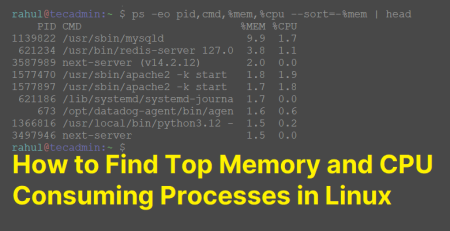In Python, JSON (JavaScript Object Notation) is a commonly used data format for exchanging data between applications. JSON data is represented as a string in Python, but sometimes it’s necessary to convert that string into a JSON object to work with it more effectively. In this article, we’ll explore how to convert a string to JSON in Python.
Python has built-in support for JSON through the json module, which provides two methods for converting a string to JSON: loads() and load(). The loads() method parses a JSON string and returns a Python object, while the load() method reads a JSON file and returns a Python object.
Using the loads() method
The loads() method takes a JSON string as input and returns a Python object. The syntax is as follows:
1 2 3 | import json json_object = json.loads(json_string) |
Here, json_string is the string that you want to convert to JSON, and json_object is the resulting Python object. Let’s see an example of this:
1 2 3 4 5 6 | import json json_string = '{"name": "John Smith", "age": 30, "city": "New York"}' json_object = json.loads(json_string) print(json_object) |
Output:
{'name': 'John Smith', 'age': 30, 'city': 'New York'}
In this example, we pass a JSON string to the loads() method, which returns a Python object that represents the JSON data.
Using the load() method
The load() method reads a JSON file and returns a Python object. The syntax is as follows:
1 2 3 4 | import json with open('filename.json', 'r') as f: json_object = json.load(f) |
Here, filename.json is the name of the JSON file that you want to load, and json_object is the resulting Python object. Let’s see an example of this:
1 2 3 4 5 6 | import json with open('example.json', 'r') as f: json_object = json.load(f) print(json_object) |
Output:
{'name': 'John Smith', 'age': 30, 'city': 'New York'}
In this example, we read a JSON file named example.json and pass it to the load() method, which returns a Python object that represents the JSON data.
Handling errors
When working with JSON data, it’s important to handle errors that may occur when parsing or loading the data. The json module provides a JSONDecodeError exception that is raised when an error occurs while parsing a JSON string or loading a JSON file.
To handle this exception, you can use a try/except block. For example:
1 2 3 4 5 6 7 | import json json_string = '{"name": "John Smith", "age": 30, "city": "New York",}' try: json_object = json.loads(json_string) except json.JSONDecodeError as e: print('Error:', e) |
Output:
Error: Expecting property name enclosed in double quotes: line 1 column 28 (char 27)
In this example, we intentionally created an error in the JSON string by adding a comma after the last property. When we attempt to parse the JSON string with loads(), a JSONDecodeError exception is raised, and we print the error message.
Conclusion
Converting a string to JSON is a common task when working with JSON data in Python. With the json module, it’s easy to parse a JSON string or load a JSON file and convert it to a Python object. By handling errors that may occur while parsing or loading JSON data, you can ensure that your program is robust and able to handle unexpected input.
It’s important to note that JSON has a specific format that must be followed, and any errors in the formatting can cause issues when trying to parse or load the data. Therefore, it’s important to ensure that the JSON data is properly formatted before attempting to convert it to a Python object.
In summary, converting a string to JSON in Python can be done easily using the json module’s loads() and load() methods. By handling errors that may occur during parsing or loading, you can ensure that your program is able to handle unexpected input and continue to function properly. With this knowledge, you can effectively work with JSON data in Python and build applications that exchange data seamlessly.

